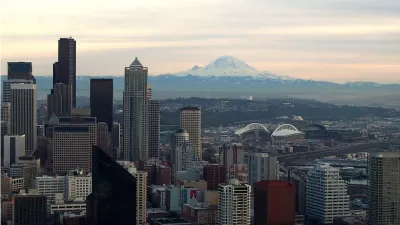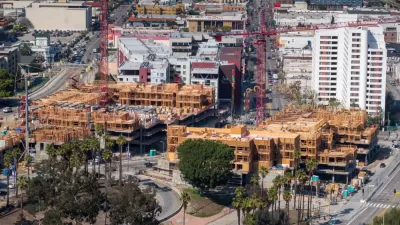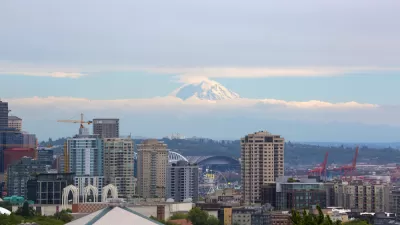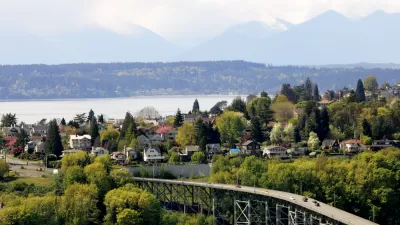The growth of Seattle growth is inflaming passions on either side of the issue—some claim that the city wants everyone to "live in cubicles"; others say the city isn't doing enough to prepare for 120,000 expected new residents.

Nina Shapiro begins this account of residents pushing back against development in Seattle with an obscenity-laced anecdote from the neighborhood of Ballard. The anecdote, says Shapiro, is a sign of growing unrest against the city's current growth patterns, and "others in Ballard—and in neighborhoods across the city that are being similarly transformed—are digging in and doing battle. In Capitol Hill, West Seattle, Eastlake, and elsewhere, residents are banding together, putting up websites and passing around petitions to stop what they contend is runaway, unregulated growth. More than a dozen such groups joined a confederation formed earlier this year called the Coalition for an Affordable, Livable Seattle, or CALSeattle."
On the other side of the issue, "another faction of the city is arguing that the development boom is exactly what should be happening, and if anything is being overregulated. In July, a developer-funded organization called Smart Growth Seattle launched a campaign, complete with video and petition, that rails against City Council members for “decreasing housing supply with legislation that adds more rules, process, limits, and costs... at a time when we are expecting 120,000 new residents."
The long read includes a lot more description of the market implications, politics, advocacy, and passion surrounding the "soul-searching" growth of Seattle.
FULL STORY: The Land-Use Battle That Is Reshaping Seattle

Alabama: Trump Terminates Settlements for Black Communities Harmed By Raw Sewage
Trump deemed the landmark civil rights agreement “illegal DEI and environmental justice policy.”

Planetizen Federal Action Tracker
A weekly monitor of how Trump’s orders and actions are impacting planners and planning in America.

How Atlanta Built 7,000 Housing Units in 3 Years
The city’s comprehensive, neighborhood-focused housing strategy focuses on identifying properties and land that can be repurposed for housing and encouraging development in underserved neighborhoods.

In Both Crashes and Crime, Public Transportation is Far Safer than Driving
Contrary to popular assumptions, public transportation has far lower crash and crime rates than automobile travel. For safer communities, improve and encourage transit travel.

Report: Zoning Reforms Should Complement Nashville’s Ambitious Transit Plan
Without reform, restrictive zoning codes will limit the impact of the city’s planned transit expansion and could exclude some of the residents who depend on transit the most.

Judge Orders Release of Frozen IRA, IIJA Funding
The decision is a victory for environmental groups who charged that freezing funds for critical infrastructure and disaster response programs caused “real and irreparable harm” to communities.
Urban Design for Planners 1: Software Tools
This six-course series explores essential urban design concepts using open source software and equips planners with the tools they need to participate fully in the urban design process.
Planning for Universal Design
Learn the tools for implementing Universal Design in planning regulations.
Jessamine County Fiscal Court
Caltrans
Institute for Housing and Urban Development Studies (IHS)
City of Grandview
Harvard GSD Executive Education
Toledo-Lucas County Plan Commissions
Salt Lake City
NYU Wagner Graduate School of Public Service





























